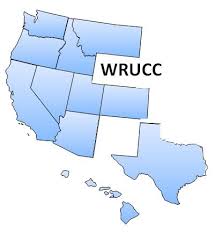
State leaders must find new ways to fund transportation because federal funding is no longer adequate. Historically, states have used funds from the federal gas tax to maintain and improve highways, bridges and transit systems. The gas tax, however, has been at 18 cents per gallon for more than two decades. As a funding source for all that is needed to maintain the country’s massive system of roads and bridges, it is almost laughable. And, Congress has simply been unwilling for entirely too long to increase the gas tax or find an alternative solution.
There are many reasons why there has been such a decline in gas tax revenue. The oil industry is in the midst of a downturn and the cost of a barrel of oil has fallen to levels not seen in more than a decade. As a result, the price of gas has been vulnerable to unpredictable fluctuations and that affects gas tax revenues.
 Additionally, automobiles have become more fuel efficient – something Congress has urged for years. People have also started driving hybrid, electric and hydrogen fuel cell vehicles, which has led to fewer carbon emissions but has also impacted gas tax revenue. Finally, inflation has never been factored into the gas tax and it is sorely inadequate now.
Additionally, automobiles have become more fuel efficient – something Congress has urged for years. People have also started driving hybrid, electric and hydrogen fuel cell vehicles, which has led to fewer carbon emissions but has also impacted gas tax revenue. Finally, inflation has never been factored into the gas tax and it is sorely inadequate now.
In 2009, the National Surface Transportation Infrastructure Financing Commission created a report urging congressional policymakers to move away from reliance on gasoline taxes and to come up with other means of funding transportation infrastructure. It did not happen then … and there is no indication that anything is likely to happen anytime soon.
As a result, states are trying to find new funding options. Not an easy task. Elected officials at the state level don’t want to create constituent anger by allowing more toll roads, nor do they want to levy fees on vehicle license or registration fees. State Departments of Transportation (DOTs) are left with few options.
A road-charge concept has gained traction in a number of states. With this system, drivers pay for road maintenance based on how much they drive rather than how much gas they purchase. This model is similar to electricity, water and other utilities. Drivers’ roadway usage is gauged by the distance they drive on public roads, regardless of the type and fuel efficiency of the vehicles used.
California is currently seeking 5,000 volunteers to participate in a road user charge pilot program. The pilot group will be selected in mid-May, and the nine-month pilot is scheduled to start in July. The program will provide participants with a choice of methods for reporting mileage. With a mileage permit, a participant can pre-pay to drive a specified number of miles. Alternatively, a participant can pay a fee per mile based on periodic odometer readings. In-vehicle equipment can also report miles traveled to a third party, which then bills the driver. After the conclusion of the pilot program, recommendations to the legislature will be made in December 2017 and a decision will be made as to whether the state should adopt it permanently.
Many other states are either studying or using the road-charge models, including Oregon, Washington and Nevada. Oregon studied the revenue option for years and then created a Road Usage Charge Program, which began July 1, 2015.
The Western Road Usage Charge Consortium (WRUCC) is a research group of western state DOTs and in January, WRUCC contracted with a consulting firm to analyze these types of revenue models. Among the 11 member states that will participate in the study are California, Oregon, Idaho, Washington and Texas.
Last December, President Obama signed the Fixing America’s Surface Transportation (FAST) Act, which established the Surface Transportation System Funding Alternatives (STSFA) program. In March, the Federal Highway Administration made available $15 million in grants for states to test alternative revenue mechanisms. Some states will receive grants to test new funding options.
Sustainable infrastructure funding is critically important and yet it has almost become a political football. Elected officials have had trouble finding any option they like. But, if the U.S. hopes to maintain the robust transportation system that taxpayers have come to expect, dramatic changes must occur soon.
SPI’s government affairs experts are excellent resources to help grow your business. Contact them today.
